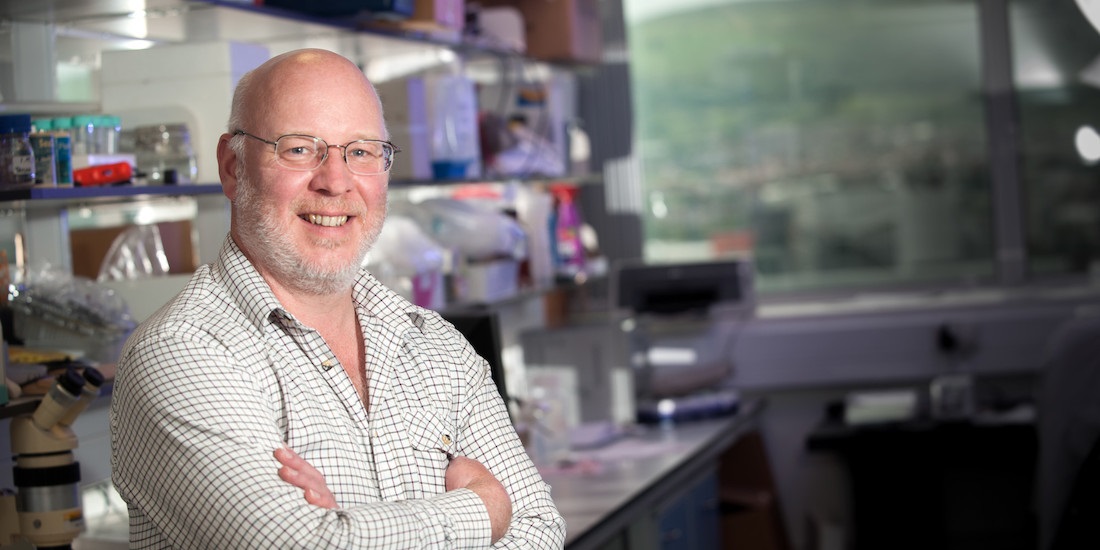Battling the alien invaders in our waters
Beneath the rippling surface of the world’s lakes and rivers, a struggle is going on and Professor Jaimie Dick is fighting to influence its outcome.

Jaimie, from the Institute for Global Food Security, School of Biological Sciences, says, ‘When I was doing my PhD in the behavioural ecology of local shrimps I discovered we had species that were invasive or alien and I realised the impact they could have – wiping out native species, affecting the entire ecology of the lakes and rivers.
‘Now we can test species’ behavioural syndromes to see how damaging invasive species would be if introduced beyond their natural range. We not only understand the impact of invaders, we’re moving towards being able to predict from their characteristics which species will be nasty and damaging.’
Killer shrimp, largemouth bass, topmouth gudgeon, the Asian clam – these are among the aliens and predators that Jaimie is trying to keep out of Ireland and other parts of the globe. He is working in parallel with Professor Christine Maggs, whose focus is on marine aliens, with others in the School and with national and international partners.
‘The topmouth gudgeon from Asia is now in England and the Environment Agency are trying to eradicate it. If it were to arrive in Ireland, it might eat all the food available for trout and roach and commercially-important species.
‘We’re setting up a project to examine the impact this fish would have and working with Inland Fisheries Ireland to make sure EU legislation is enforceable. Lorryloads of fish from England are coming across and being tipped into ponds. The problem might not lie with the species being deliberately introduced but with something hitchhiking with them.
‘With many of these invaders it takes a long time before they’re noticed. And at that point it’s too late. We’ve been studying the killer shrimp in Europe for years. We warned in 1999 that it should be on the radar in England in respect of legislation but unfortunately it has now arrived.’
Jaimie’s research is not only focused on influencing policy, it’s finding practical solutions. ‘We have PhD students funded by DEL, Inland Fisheries Ireland and Waterways Ireland. They’ve been examining how common disinfectants used to clean fishing gear can stop a secondary spread of invaders, such as the Asian clam.
‘If fishermen simply dip their nets for a few minutes into Virkon Aquatic, made by Dupont who are interested in our research, before they go on to the next lake, that’s enough to kill 99 per cent. We’ve been able to persuade the fishermen to do this because they’ve seen the evidence that it works.’
Jaimie’s work is also having a global impact. ‘We’re now working in lakes and rivers across the world. We’re setting up networks of researchers doing simultaneous experiments in different locations, such as Canada, South Africa and China.
‘I would be very much in favour of task forces coordinated within European member states who have the ability to respond rapidly, to manage invasive species outbreaks in the same way as an outbreak of rabies, for example.
‘But we’re making a difference. Impact is coming through in terms of reduced economic cost; we see legislation, policy and attitudes changing. We have fantastic support from Queen’s. We have a range of funded studentships to support our research, grants from the NERC and Leverhulme Trust, significant local funding from NIEA through Quercus. We’re making the science happen and it’s very visible.’
